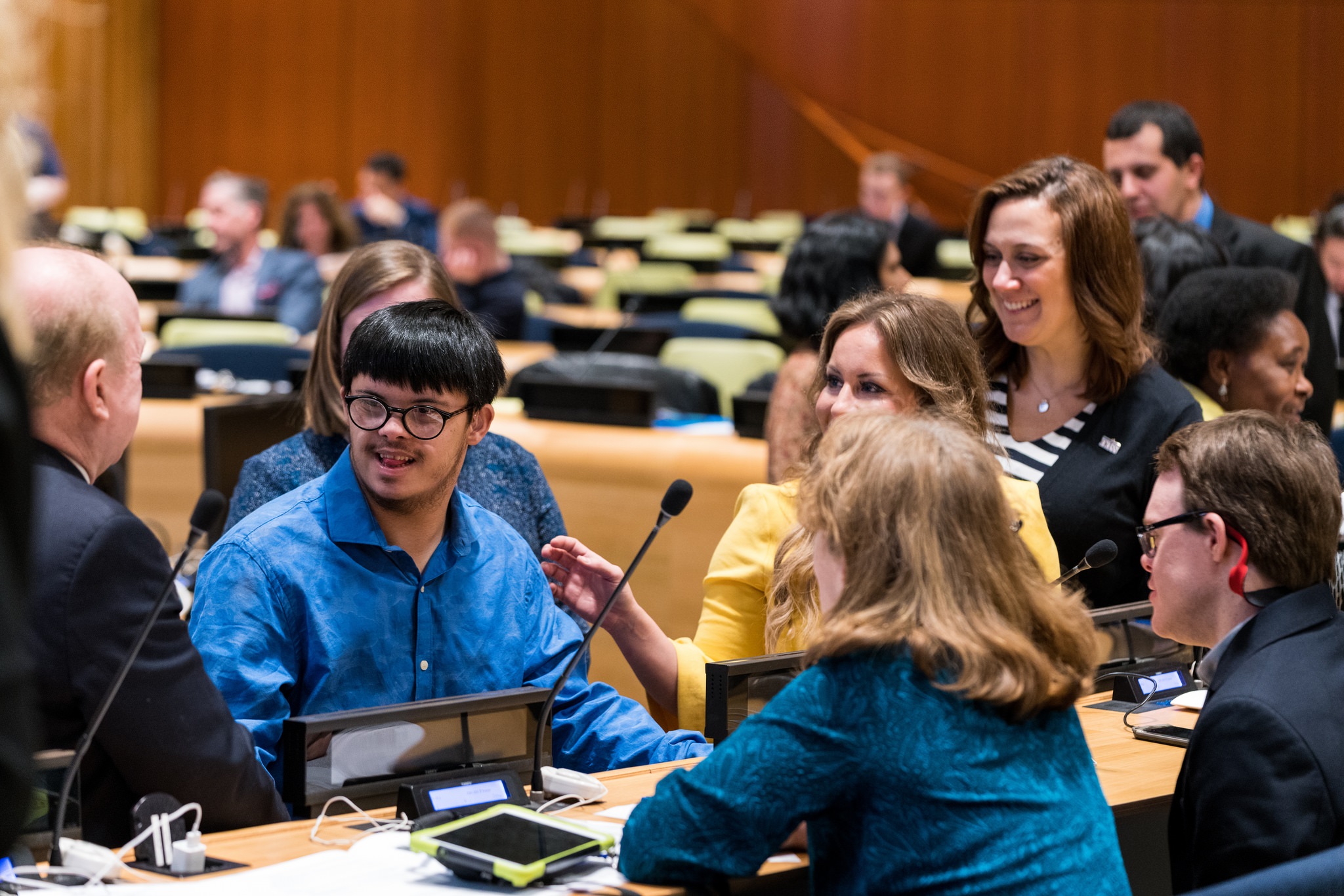
Advocacy creates a channel of communication between citizens and their elected representatives; it is in many ways the crux of democracy. Typically, people advocate for a cause that affects their life directly or sometimes simply because they feel passionate about a certain issue. Within the disability community, the powerful motto ‘Nothing About Us, Without Us’ is often heard.
In celebration of the 12th anniversary of World Down Syndrome Day (WDSD), the United Nations Headquarters hosted the 6th World Down Syndrome Day Conference on 21 March. This year’s theme was, ‘#MyVoiceMyCommunity – Enabling people with Down syndrome to speak up, be heard and influence government policy and action, to be fully included in the community.’
On paper, the theme echoes the words of Article 29 of the UN Convention on the Rights of Persons with Disabilities (CRPD) which is linked to Sustainable Development Goal 10 (SDG 10) aiming to reduce inequality within and among countries.
In practice, the theme encourages people with Down syndrome, their families and others working in the field to interact with governments and policy makers, to ensure that their voices are heard. The practical implication of this year’s theme is the encouragement of and support for collaboration between advocates and self-advocates.
This year’s celebration of WDSD showcased unique examples of how this collaboration can be executed successfully, resulting in full inclusion of people with Down syndrome in social and political life. Member States and advocates are playing their part.
In the Republic of South Korea a law promoting and protecting the rights of persons with development disabilities was recently enacted and in the United Kingdom (UK) an all-party parliamentary group on learning disabilities exists. Down's Syndrome Association (DSA) in the UK runs the self-advocacy project, ‘Having A Voice’ which creates spaces for people with Down syndrome to express their opinions on issues that matter to them and influence their communities and society more broadly.
The Public Fund of Parents of Children with Down Syndrome in Kyrgyzstan provides support and advice to parents based on the logic that if they are empowered, the chances are that their children will be too. The Iberoamerican Federation of Down Syndrome and the Peruvian Down Syndrome Society in Peru run the Citizenship Project which has published a toolkit that enables people with Down syndrome to be trained in the building and exercise of citizenship and facilitates their access to supported decision making. The list of advocacy groups that are effectively working with people with Down syndrome to ensure that their often-underestimated voices are the loudest does not end there.
What about self-advocates? In some ways they are the most powerful messengers. Jamie Dolan, aged 31, from the United States works part-time at the National Down Syndrome Society where he prepares information kits about the needs and abilities of people with Down syndrome.
CoorDown is an Italian organization that protects and promotes the rights of persons with Down syndrome. Eighteen year old Irene Galli,recently joined the CoorDown’s Self Advocate Advisory Board, comprised of young people and adults with Down syndrome, aiming to represent their views and advise the CoorDown Council.
When it comes to the empowerment of people with Down Syndrome, and persons with a disability more generally, combining the facilitative capacity and resources of advocates, with the ability, experience and passion of self-advocates, makes for a powerful force.
Self-advocacy is a fundamental part of making progress in ensuring that no one is left behind, a pledge made by the international community through the 2030 Agenda for Sustainable Development. Truly including people with Down syndrome in the planning and execution of policies will ensure that ‘Nothing About Us, Without Us’ is not simply a motto, but a practical reality.
To learn more about DSPD's work on disability issues click here.
SOURCE: UNDESA DSPD
 Welcome to the United Nations
Welcome to the United Nations